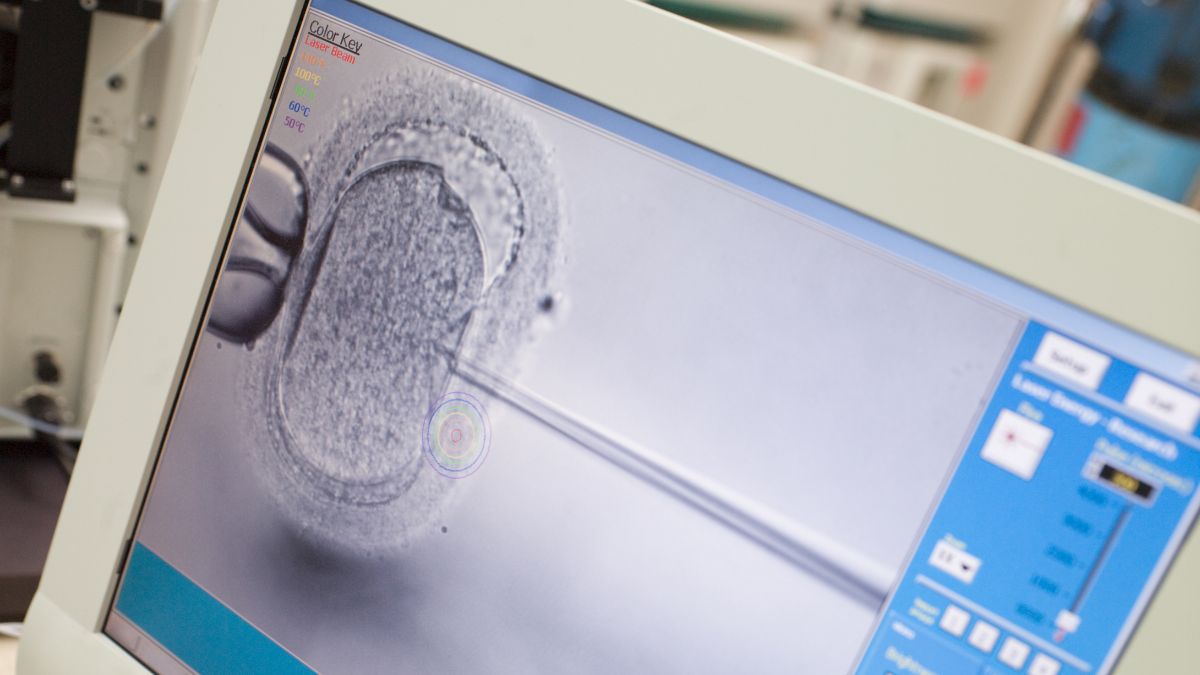The use of embryo screening technology in in vitro fertilization (IVF) has sparked significant debate, particularly regarding its ethical implications and the potential for eugenics. Critics argue that practices allowing the destruction of embryos based on genetic criteria are morally questionable and could lead to a slippery slope in reproductive ethics.
Explainer As A Former DC Cop, The Federal Takeover Was The Right Move
Currently, several states have laws prohibiting abortions of unborn babies diagnosed with chromosomal abnormalities. However, embryos created through IVF can be discarded without legal repercussions if they are deemed unfit based on genetic testing. This discrepancy has raised concerns among advocates for reproductive rights and disability rights.
Noor Siddiqui, founder and CEO of the IVF company Orchid, has been vocal about the benefits of embryo screening. In a recent post on X, she stated, "What if your baby never walks? What if they are never able to live independently? What if you could have stopped it… but chose not to?" Siddiqui argues that her technology enables parents to prevent serious health issues in their future children.
Despite her claims, critics contend that the practice of culling embryos based on perceived quality of life undermines the value of all human life. They argue that it promotes a dangerous mindset that equates worth with health and capability. Siddiqui's approach has been described by opponents as a form of eugenics, reminiscent of historical practices aimed at controlling reproduction based on genetic traits.
Siddiqui maintains that her company’s screening process is not about ending lives but about giving every baby a fair chance at health. "No children are being killed," she asserted in a recent interview. However, the reality is that embryos identified as having potential health issues are often discarded or cryopreserved indefinitely.
The ethical implications of such practices have prompted discussions among lawmakers and advocacy groups. Some argue that the current regulatory framework does not adequately address the moral complexities of embryo selection and destruction. Critics of the technology, including disability rights advocates, emphasize that it could lead to societal pressures to conform to certain health standards, potentially marginalizing individuals with disabilities.
The debate is further complicated by the historical context of reproductive technologies. The roots of abortion and eugenics in the United States can be traced back to figures like Margaret Sanger, who advocated for reproductive control based on racial and social criteria. This legacy continues to influence contemporary discussions about reproductive rights and the ethical use of technology in family planning.
As reproductive technologies evolve, the implications of embryo screening and selection will likely remain a contentious issue. Advocates for responsible reproductive practices are calling for a more comprehensive examination of the ethical dimensions of these technologies, urging society to consider the long-term consequences of allowing genetic selection to dictate the value of life.
The future of reproductive technology, including innovations like artificial wombs, raises additional ethical questions. Siddiqui and others in the field are optimistic about the potential for advancements to improve health outcomes, but critics warn that without careful oversight, these technologies could lead to further ethical dilemmas.
In conclusion, the ongoing debate surrounding embryo screening in IVF highlights the need for a balanced approach that considers both the potential benefits of technology and the moral implications of its use. As society grapples with these issues, the voices of both supporters and critics will play a crucial role in shaping the future of reproductive health and ethics.
Why it matters
- Embryo screening in IVF raises ethical concerns about eugenics and the value of life, sparking debate among advocates and critics.
- Discrepancies in laws regarding embryo disposal and abortion highlight moral complexities in reproductive rights.
- Critics warn that embryo selection could marginalize individuals with disabilities, promoting societal pressures to conform to health standards.
What’s next
- Lawmakers are urged to review regulations on embryo screening and destruction to address ethical concerns.
- Advocacy groups plan to hold discussions on the implications of genetic selection in reproductive technologies.
